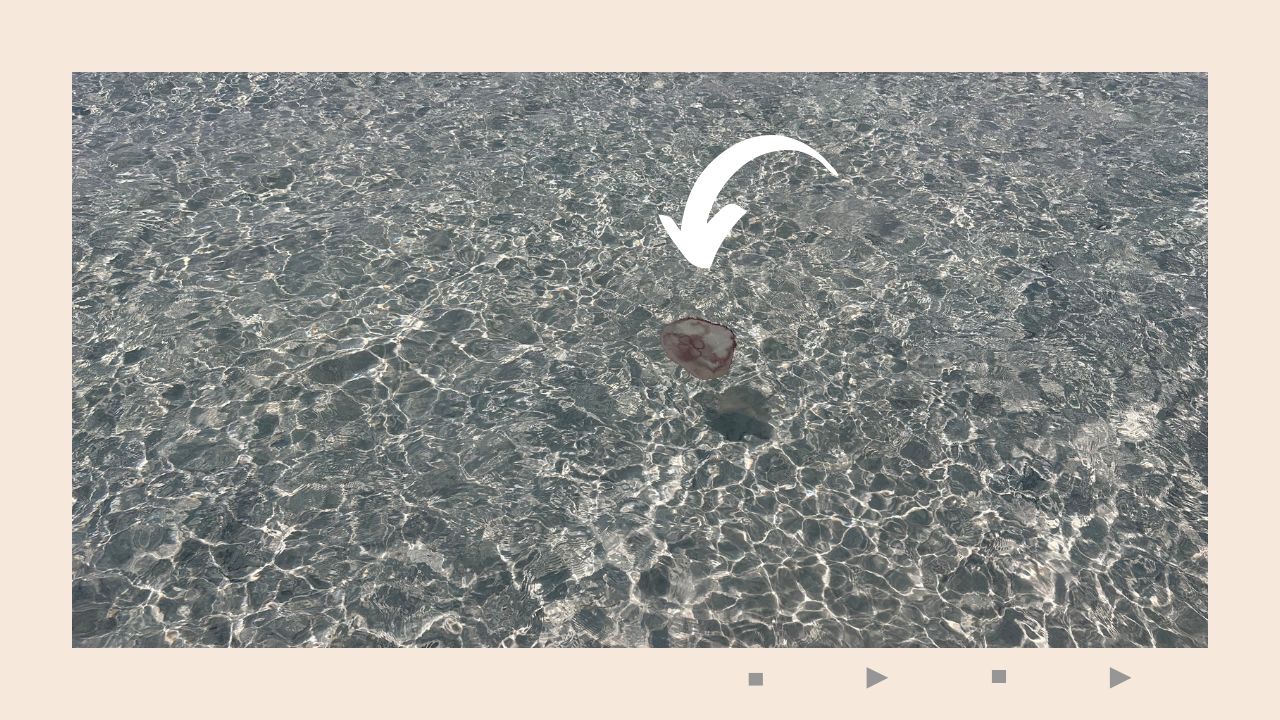The Time I Swam with Thousands of Jellyfish
Aug 25, 2023
Okay I didn’t swim long with thousands of jellyfish because let’s be honest, I’m kind of a wuss when it comes to squirmy things. I was vacationing with my family and we took a pontoon boat out to Crab Island in Destin, FL. Don't be fooled by island in the name. It was actually a sandbar, and we couldn't access land. The water was truly pristine--a crystal clear blue green color. One small problem…there were literally thousands of jellyfish in the water. There were also hundreds of boats there which means the propellers were chopping up the jellyfish creating what the locals call "stinging water". It’s when the jellyfish are cut into small pieces making them essentially invisible so they get in your swimsuit, and hit your leg, and ouch, you’ve been stung by the "invisible" jellyfish. These type of jellyfish can sting up to 6 hours after they’ve died!!
Is this a counseling article or jellyfish documentary? Glad you asked. It’s about counseling. Ha. The whole time I was there I kept thinking about the traumatized brain. Nerd alert much?! The requirement to be alert and aware of danger to prevent being hurt, the decrease in playfulness, the consistent scanning for danger, and the increase in anxiety were all reminders of the traumatized brain.
I have 3 boys and it’s never hard for us to get a ball game of any kind going. We brought a football to the island, but we really couldn’t play well. We had to be so hyper vigilant about the jellyfish, it made beach football hard. And well, not that fun. We’d yell, "jellyfish coming on your right, 2 on your left", then ouch the stinging water sensation! Game over! And back to the boat we went. The good news is we went to the swimming pool later that day, and playing football was easy. Fun back on! Riding in the safety of the boat was pretty fun too.
When there is real danger, our brain is so helpful in keeping us alert and getting us to find ways to avoid the danger. The thing about a traumatized brain, is it has a hard time knowing when it's not swimming with jellyfish anymore and when it's swimming in the pool. It stays keyed up looking for potential threats. As mentioned earlier, simple, normally fun things like football, become hard to do and not fun anymore.
I do trauma therapy with kids and adults, and a sad thing to watch is how even a child loses their ability to play well when they've experienced something traumatic or are living a lifestyle of trauma.
Trauma can be a lot of things, but to put it simply, it's when the brain believes you are in actual threat of dying with no hope. Here are some examples: being held at gunpoint, witnessing someone die, a bad wreck or accident, watching something terrible happen, your job or livelihood being threatened, parents who are emotionally unavailable or overreacitve due to substance use or mental health issues, and physical, emotional, or sexual abuse. This list is not even close to exhaustive, but I just wanted to give a picture. And perhaps you're thinking how does an emotionally unavailable or overreactive parent seem life threatening. Well consider, that children literally need parents to survive so when parents are unreliable, overly harsh, or unavailable this is stored in the brain as life threatening.
Our brain needs help knowing it is safe again after a trauma. If not, the brain stays pretty hyper vigilant even when it was swimming with jellyfish and now it's swimming in a pool. For people who have what's called complex trauma i.e. not just a one time scary event, but are living or have lived in threat (think abusive marriage, abusive childhood, emotionally reactive parents etc), teaching the brain it's safe now is hard work. But it's possible, and a worthy endeavor.
I want to bring awareness to what trauma is. I want to normalize feelings of hyper vigilance after that experience. Sometimes if you don't have the language for it, it may just appear like you're on edge, moody, having a hard time regulating your emotions, can't enjoy things well, your body has a hard time resting, you're wanting to check out emotionally, and/or feel overwhelmed easily. If this sounds like you, I'd strongly encourage you to evaluate your past experiences. Not be cliche here, but the first step is admitting there's a problem. It's hard to fix something you haven't acknowledged is a problem (Just ask my husband about my car battery. All the signs pointed to me needing a new battery, but it wasn't until I was stranded and he had to leave work to help me that I acknowledged, it might be time for a new battery. Help please.)
As you help your brain sort out your hard experiences, give it some truth to cling to, and help it know when it's safe and when it's not--you are on the road to healing. The previous sentence sounds like a quick 3 step process to healing from trauma, but I want to be clear it's process that requires great effort and work. You may need to ask for help from a mental health professional or at minimum tell your story. Language is very helpful in managing past traumas. Awareness is too. If pushing your hard stuff deep down worked, I'd help you do it. Unfortunately, we can't push heavy things down so deep that our body and brain won't remember. Things we acknowledge, we are able to exercise some control over. Whereas, things we ignore tend to overpower us.
Be brave. Tell your story. Ask for help. There is hope for past traumas.

